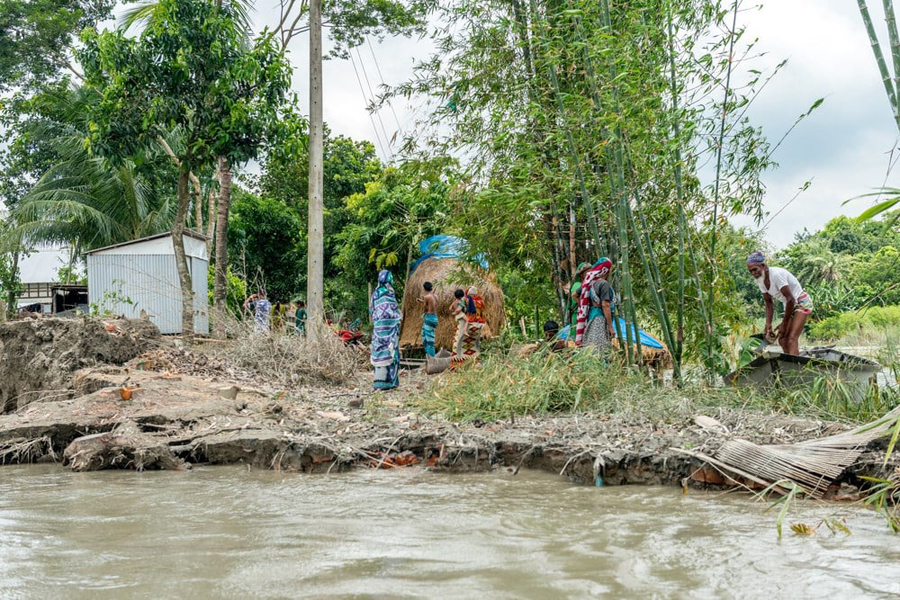

When the developed nations are yet to get the priorities in terms of global warming right, countries like Bangladesh are not expected to have enviable records on such issues. But much as such countries may be the least contributor to environmental pollution leading to worsening climate, their stake is higher than that of the rich and more pollutant nations. Thus Bangladesh is the seventh most climate-vulnerable country in the world. Usually, the vulnerability indices of the smaller, least developed, and developing countries have prompted them to look more for external climate funds than domestic resources. Now domestic mobilisation of fund is also important because no one else will bear the brunt of increasing and unpredictable natural calamities. The country will definitely claim its share of the rightful green climate fund (GCF) created under the UN framework convention, but it also has to do its homework for judicious utilisation of this fund and its domestic allocation for the purpose.
According to a report carried in the FE on Sunday last, the moderate domestic allocation of fund hardly finds its rational and proper use. Climate is a vast subject and it is not same everywhere on the planet. This deltaic land may have some similarities with its big neighbour India but still this lower riparian nation has its special problems which are quite different from that upper riparian land. So this country has to identify the causes of its climate-related vulnerabilities on its own. This climate emergency points to the fact that continuous and extensive research is the key to pinpointing the causes and nature of vulnerability arising out of global warming. To the credit of the Sunday's report, it has pointed out the paucity of research and knowledge management in relation to climate vulnerability or lack of resilience. In a country of limited research base, though, this is not quite surprising.
However, the fact is that indifference to climate-related research can be self-defeating in the end. Under the six broad categories of climate funding by 25 ministries, this particular research field has been the least recipient of allocation of fund, according to the report. This has to change urgently because the less than 5.0 per cent ---roughly 3.0 per cent --- allocation for research and knowledge creation and implementation will not help the country to build a model of resilience to climate vulnerability. The Bangladesh Rice Research Institute (BRRI) and the Bangladesh Agriculture University have been an exception to the general lack of research culture in the country. Now there is a complaint that the salinity-drought- and flood-tolerant paddies developed by the BRRI have failed to reach farmers at the grassroots level because of lack of government promotion and patronage.
Such inaction on the part of government agencies act as a disincentive for research. Academic knowledge gets authenticated by research and experiment but unless the outputs of such efforts are taken out of the laboratory for implementation at the field level to the benefit of the end users, the overall ambience of knowledge creation through research and experiments shrinks. Given the country's vulnerabilities to an increasingly hostile climate, the jaded outlook must change for developing its own robust research base in order to take care of the special kinds of problems confronting it.


 For all latest news, follow The Financial Express Google News channel.
For all latest news, follow The Financial Express Google News channel.